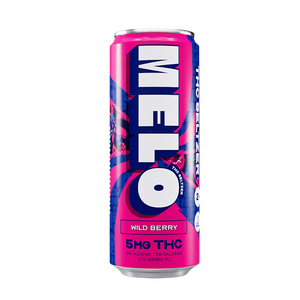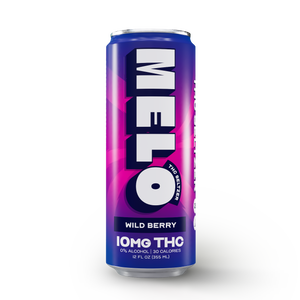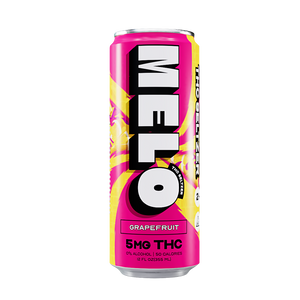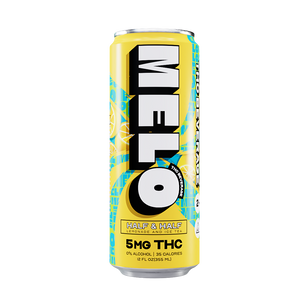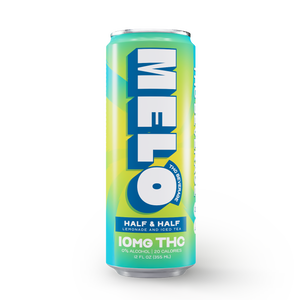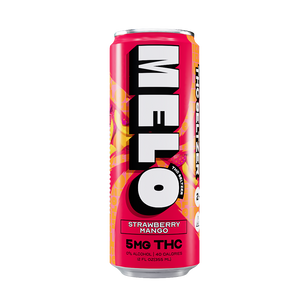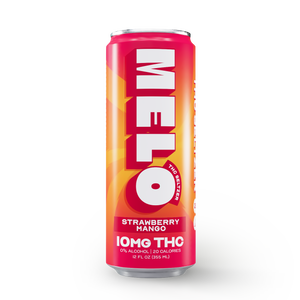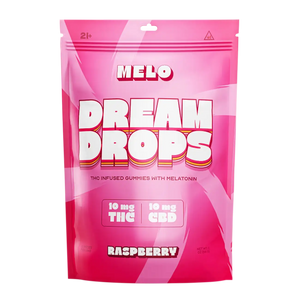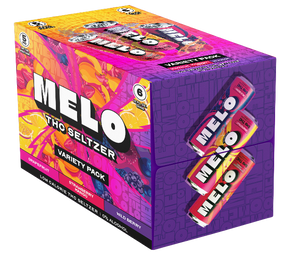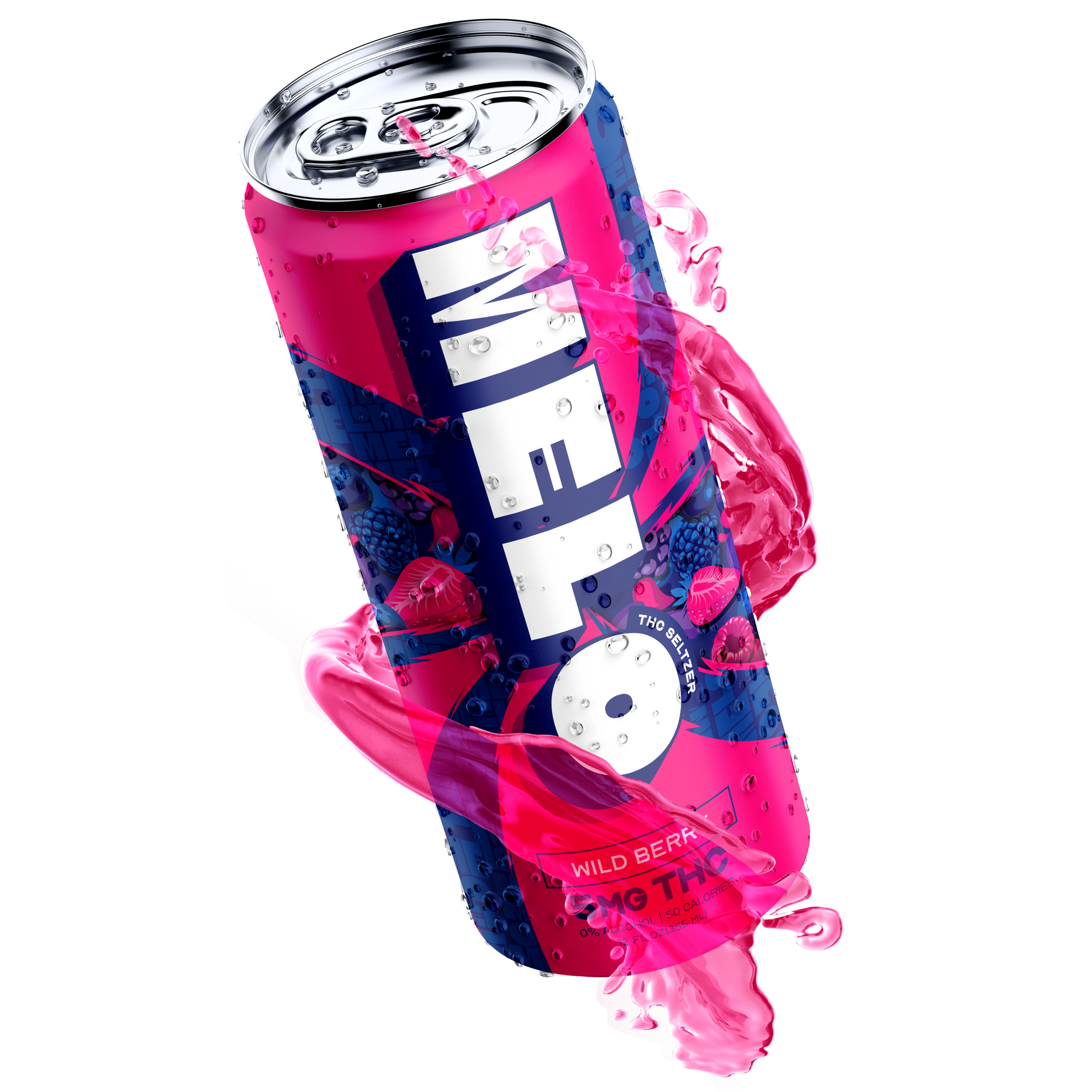

Which Has Faster Onset: THC Beverages or Edibles?
Exploring the Speed of Effects: THC Beverages vs. Edibles
In the diverse world of cannabis, a frequently asked question centers on the speed at which effects are felt: Do THC beverages or edibles act faster? This inquiry goes beyond mere curiosity; it's about comprehending how different methods of consumption interact with our bodily systems. Through this captivating journey, we'll explore the path THC takes through your body, charting its course from the moment of ingestion to the onset of effects. Embark with us as we decode the science of how these popular cannabis formats are absorbed by the body, aiming to make your next experience with MELO both enlightening and enjoyable.
For cannabis enthusiasts who prefer alternatives to smoking, the modern marketplace offers an abundance of choices, thanks to the broad legalization efforts. Whether you're drawn to a specific format like gummies, baked treats, beverages, or tinctures, personal preference reigns supreme. However, one critical aspect to consider, regardless of your chosen method, is the time it takes for THC to manifest its effects.
Onset Times for Edibles vs. Beverages:
Understanding the Onset Times of Cannabis Edibles
The intrigue of whether THC beverages or edibles act faster brings us to a key question: how quickly do these consumption methods take effect? If you've surmised that beverages offer a swifter onset, you're on target. Let's dive into the specifics.
The Wait Time for Edibles
When consuming cannabis edibles, the product must navigate through your digestive tract. The time it takes to feel the effects can vary widely, influenced by factors such as whether you've eaten them on an empty or full stomach, the speed of your metabolism, and various other individual physiological aspects. Initial effects might be noticeable within the first 30 minutes, but achieving the full spectrum of effects can take anywhere from 1.5 to 2 hours.
Onset Time for THC-Infused Beverages
In contrast, THC-infused beverages bypass much of the digestive process, allowing for quicker absorption into your bloodstream. The THC, made water-soluble, is readily absorbed by the soft tissues of your mouth, esophagus, and stomach. This direct absorption method significantly cuts down the wait time compared to edibles. Typically, you might start feeling the effects in just 10 to 15 minutes, with the peak effects occurring around 45 minutes to one hour after consumption. This quicker onset is a key reason behind the growing popularity of THC beverages.
Why THC Beverages Take Effect Faster Than Edibles
Consuming a cannabis edible introduces the active ingredients to your stomach, where they then journey to the liver for processing. In the liver, THC is converted into a more potent compound, 11-hydroxy-THC, before moving on to the intestines. This conversion and subsequent absorption process is quite lengthy, explaining the delayed onset of effects from edibles.
Conversely, the advancement of nanotechnology in crafting THC beverages serves a dual function. Not only does it emulsify THC for a more uniform distribution in liquids, but it also facilitates the commencement of absorption right from the mouth. Unlike tinctures, which are held under the tongue for direct absorption, beverages offer multiple opportunities for the body to absorb THC. Upon ingestion, the water-soluble THC begins absorbing through the esophagus and continues as the beverage reaches the stomach, ensuring comprehensive absorption of the remaining THC.
This method of delivery is exceptionally efficient our IP emulsion technology process which we have used in Canada for the past 5 years reduces the THC molecules to a much smaller size, enhancing their ability to be absorbed through the body's soft tissues instantly upon consumption.
Factors Influencing Edible Onset and Duration
When consuming cannabis edibles, the onset time can vary significantly. Typically, an edible takes about 30 minutes to 2 hours to kick in, but this can depend on multiple factors, including the individual's metabolism, the edible, and the amount consumed. For instance, a 5mg THC edible might take longer to show effects compared to a higher dosage. Once ingested, the THC travels to the stomach, then to the liver, where it is converted into 11-hydroxy-THC, a more potent compound. This conversion explains the delayed onset and stronger effects of edibles.
If you're wondering how long edibles last once opened, storing them properly to maintain their potency is essential. Opened edibles can last several months if stored in a cool, dry place. Consuming a gummy or other edible can last 4 to 12 hours, with the most intense effects usually occurring two to four hours after ingestion.
For those who find that edibles don't seem to work for them, it might be due to individual differences in metabolism or digestive processes. To make edibles hit faster, consuming them with a high-fat meal can sometimes help. Additionally, the potency and duration of the high can vary with the amount of THC in a hit or a 10mg edible.
Comparatively, THC beverages take effect faster than edibles due to the use of nanotechnology, which reduces THC molecules to a smaller size, enhancing absorption through the soft tissues of the mouth and esophagus. This method ensures that THC starts to be absorbed almost immediately upon consumption, offering a quicker onset of effects.
Understanding the difference between THC drinks and edibles can help in choosing the right product for your needs. While both offer unique benefits, beverages tend to provide faster relief, whereas edibles might offer a more prolonged experience. It's important to note that the peak of edibles can vary, typically occurring a few hours after ingestion.
The Quick Impact of THC Beverages Compared to Edibles
When you consume a cannabis edible, its active ingredients are initially processed in your stomach, then transferred to the liver for further processing. It's in the liver that THC is transformed into 11-hydroxy-THC, a more potent version of THC, which is then released into the intestines. This extended process accounts for the slower onset of effects seen with edibles.
In contrast, THC beverages benefit significantly from nanotechnology, which not only ensures the THC is evenly mixed within the liquid but also initiates faster absorption starting from the mouth. This is different from tinctures, which are absorbed sublingually (under the tongue). THC-infused drinks provide several absorption points as soon as you begin drinking. The water-soluble THC quickly starts to be absorbed through the esophagus and continues to be absorbed as it reaches the stomach, allowing for the efficient uptake of THC into the system.
Thanks to IP nano emulsion technology, THC molecules in beverages are broken down into much smaller sizes, significantly increasing their absorption rate through the soft tissues of the body right from the moment of consumption, leading to a quicker onset of effects in weed drinks compared to edibles.
In conclusion, whether you're consuming edibles or THC beverages, the key to a good experience is understanding how long it takes for the effects to kick in and how to maximize their effectiveness based on your body's unique response.
